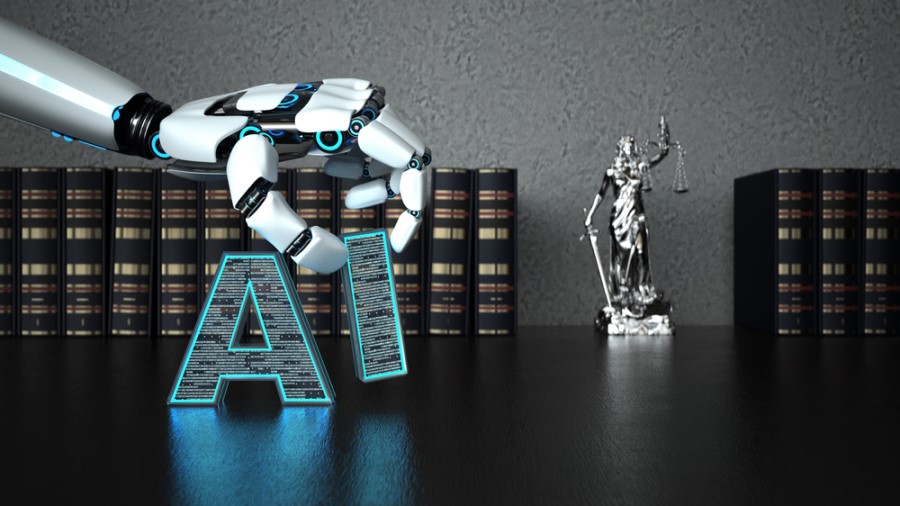
律师事务所一旦开始人工智能的探索,就已经没有回头路了。
安理国际律师事务所(A&O)不久前宣布与人工智能平台Harvey建立独家合作关系。和ChatGPT一样,Harvey也由OpenAI公司资助研发,并使用了该公司更为进阶版的模型。A&O指出,通过“自然语言处理、机器学习和数据分析,Harvey能够使法律工作的许多层面实现自动化,或促使其得到提升,例如合同分析、尽职调查、诉讼,以及监管合规”。
A&O新加坡办公室联席管理合伙人Tim Beech告诉ALB,早在去年11月,A&O律师便加入了市场创新小组与Harvey开发者共同展开Beta测试。“A&O大约有3500名律师就他们的日常法律工作向Harvey提出了大约4万个查询。Harvey不仅是一个人工智能平台,更是一个法律服务游戏规则的改变者。”他说。
另一家大型国际律师事务所——伟凯律师事务所,也已经在法律业务中使用了多种人工智能工具。通过AI的持续主动学习和技术辅助审查能力,帮助律师在无损工作质量和准确性的情况下更为快速地满足客户紧迫的需求。伟凯管理合伙人李得伟律师指出:“法律科技不再仅仅是个‘好东西’,而是大型律师事务所的 ‘必备品’。”
李律师进一步介绍道,例如在公司业务方面,伟凯使用了尽职调查及合同审查平台Luminance,在节省30-40%成本的同时更为有效地分配资源,帮助律师快速总结关键合同条款并完成尽职调查。而在诉讼业务方面,伟凯使用了业界领先的人工智能工具Brainspace和Relativity,加速文件审查,并从律师的决定和编码中进行 "学习",从而识别潜在的风险,更好地产出应对策略。
李律师表示,除了目前正在使用的技术工具,伟凯也正在对ChatGPT和类似的法律技术工具进行评估。
谈及使用AI工作所带来的“第一手”好处,李得伟律师指出:“人工智能或将在很大程度上改变法律界的工作方式,律所在众多业务领域将变得更有效率,并为客户提供更高质量的法律服务。”
“随着人工智能的大型语言模型逐渐成熟,我们可能会看到人工智能被更频繁地用于耗时和劳动密集型的任务,例如法律研究、初稿框架或特定条款的文件起草。”李律师说。
Tim Beech也直言:“Harvey使律师的工作更为高效,同时也使A&O在法律市场上具备更加显著的竞争优势。”
“编辑任何类型的文件都要比从一张白纸开始要容易得多,Harvey代表着你永远不会从一张白纸开始。虽然我们不能完全依靠Harvey的输出来提供法律建议,但它确实意味着律师可以把他们聪明的脑力集中在最有价值的地方。” Tim Beech补充道。
不过李得伟律师也提示道,“人工智能工具蕴含着巨大的潜力,但也藏有一定的风险”。
根据李律师的经验,将人工智能技术应用于法律事务时,经常听到来自法律人及客户的几点担忧:其一是此类工具的准确性;其二,人工智能具备“开箱即用”的特性,但并不意味着它所提供的信息不需由专业人员展开进一步审查。
不过,伴随大型律所中的律师有机会不断使用人工智能工具,他们对其的局限性也有了更深刻的认识,可以逐渐游刃有余地依据手头工作性质,决定是否要寻求AI工具的帮助。
也正是由于人工智能在法律工作中本质上仍扮演辅助角色,所以似乎不必对“律师是否会被人工智能淘汰”给出过于消极的回答。
李律师指出,面对不断推陈出新的法律科技工具,律所也不会止步于当下。例如伟凯已经部署了一支多元化业务服务团队,持续评估和选择能够帮助律师改善其现有工作流程的新兴人工智能工具。该团队还不断设计改进人工智能工具的最佳使用方法,并提供无缝衔接的技术支持。
此外,“在领导层面,我们组建了一个工作小组,旨在研究新的人工智能技术对律师业务实践可能造成的影响,并就律所该如何应对并适应提出及时的建议”,李律师说。
BRING IN THE ROBOTS
Law firms have set off on the road to AI, and now there’s no turning back.
ChatGPT might be the latest kid on the AI block, but law firms have been using tools such as ROSS, TAX-I and Litigate for some time now. However, the news of Allen & Overy (A&O)’s ground-breaking partnership with Harvey, an innovative artificial intelligence platform built on an enhanced version of OpenAI’s revolutionary GPT models, show that AI is set to become a vital part of the legal industry’s future.
Harvey is a platform that uses natural language processing, machine learning and data analytics to automate and enhance various aspects of legal work, such as contract analysis, due diligence, litigation and regulatory compliance. Tim Beech, Singapore-based joint office managing partner at A&O, tells ALB that Harvey has been tested in beta by a team of A&O lawyers and developers since November 2022.
“At the end of the trial, around 3500 of A&O’s lawyers had asked Harvey around 40,000 queries for their day-to-day work. For us, Harvey is not just a platform, but a game-changer for enhancing and transforming legal services,” says Beech.
Another international firm, White & Case, has also been utilizing a variety of AI tools in both corporate and litigation practices. By applying Continuous Active Learning (CAL) and Technology Assisted Review (TAR) of AI tools, the firm says it can help lawyers to meet tight client deadlines without loss in quality and accuracy of review.
We understand that legal technology is no longer ‘good to have’, but ‘must have’ for a big law firm,” says David Li, office executive partner at White & Case’s Beijing office.
“On the corporate side, White & Case uses an AI-enabled due diligence and contract review platform, Luminance, to help lawyers summarize key contractual provisions quickly and with more efficient allocation of resources and 30-40% of cost savings,” he elaborates. “On the litigation side, the firm uses the industry leading AI tools such as Brainspace and Relativity to ‘learn’ from the lawyers’ decisions/coding and identify potential risks, and better inform the legal strategy.”
White & Case is not only constantly assessing their existing tools against new tools in the market, but also doing the same with ChatGPT and similar tools tailored or otherwise relevant to the legal sector, according to Li. He points out that “AI has the potential to significantly change how the legal profession works. With the use of AI, law firms are more efficient in many different areas and improve the quality of service for clients.”
“As large language models (LLMs) gradually become more mature, we are likely to see AI being used more frequently in tasks that are time-consuming and labour-intensive, such as legal research or document drafting of initial drafts or specific clauses,” adds Li.
Beech also believes that “the Harvey platform enables lawyers to work more efficiently and effectively, as well as giving A&O a significant competitive edge in the legal market.”
“We could not rely solely on the outputs of Harvey for legal advice, but it does mean that our lawyers can focus their brilliant brain power where it’s most valuable: as we all know, it’s much easier to edit a document of any sort than it is to begin by staring at a blank page. Harvey means you’re never starting from a blank page,” he says.
However, while there is great excitement and potential with AI tools, firm leaders also warn there are risks to watch out for.
According to Li, concerns frequently heard from lawyers when considering using AI on their matters is “whether AI tools guarantee accuracy.” Also, the information provided by AI out-of-the-box should not be considered a substitute for substantive review of documents by appropriately qualified persons.
Therefore, the more lawyers have access to those advanced tools, the more familiar they will become of their limitations, and then they can make decisions about whether or not to deploy AI for the task at hand. While AI tools in nature are confined to a supplementary role to legal work, lawyers might not need to be afraid of being replaced by artificial intelligence.
Law firms have already begun to understand the power of the AI tools, and they are now exploring further. Li shares that White & Case has built a diverse business service team that consistently evaluates and selects new AI-enabled tools that can help lawyers improve their existing workflows. The team also designs best practices of using the tools and provides seamless technical support when needed.
Also, “at the leadership level, we have assembled a task force to study the implications that new AI technology may cause to the practices and to make recommendations on how the firm should approach and adapt to these new tools,” says Li.


